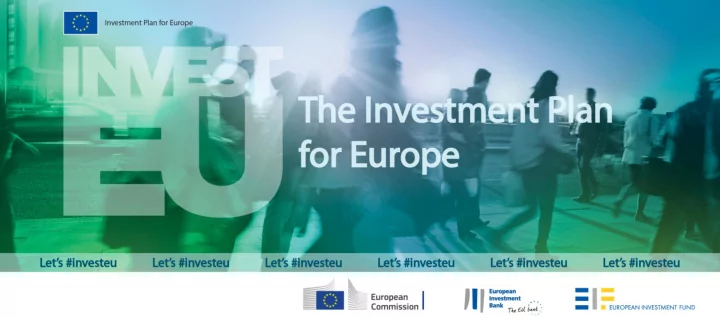

EFSI has proven to be useful • 385 approved transactions in 27 Member States • 151 infrastructure projects and 234 SME financing agreements • Almost 380 000 SMEs can already benefit from EFSI • Approved operations represent a financing volume of EUR 27,5 billion: • EIB: EUR 19,8 billion for infrastructure projects • EIF: EUR 7,7 billion for SME agreements triggering total investments of around 154 billion; 49% of the EUR 315 billion the plan is expected to trigger. • Energy, research and development as well as digital top beneficiary sectors
Project examples: infrastructure Energy efficiency in France: Société de Tiers Financement • Aim: increasing energy efficiency in 40 000 apartments in France • EFSI financing will enable homeowners to access long-term loans and technical assistance, create 6,000 jobs during the construction phase and save the energy consumption roughly equivalent of 9,600 households. • EIB financing under EFSI: up to EUR 400 million, total project cost EUR 800 million
Project examples: SMEs SME financing agreement in Bulgaria and Slovakia: EIF and CIBANK • A guarantee agreement to enhance access to finance to innovative SMEs and mid-caps in Bulgaria and Slovakia, allowing CIBANK to provide loans at favourable terms for two years • EIF’s guarantee is provided under the “EU InnovFin finance for Innovators” initiative with the financial backing under Horizon 2020 • Support for innovative Bulgarian and Slovakian companies under this transaction is expected to generate a portfolio of EUR 65 million of loans
Project examples: cross-border Urban regeneration of former industrial sites, e.g. in Belgium - Ginkgo Fund 2 • Urban regeneration of former industrial sites in France, Belgium and other EU countries • Aim: cleaning up contaminated sites, using environmentally-friendly techniques, and converting them into homes and offices • Expected to create around 5,000 housing units, as well as providing 8,500 full- time equivalent jobs • EIB financing under EFSI: 30 million
Three evaluations of the EFSI • Commission evaluation 14.9.2016 • European Investment Bank evaluation 5.10.2016 • Ernst & Young evaluation 14.11.2016 • Opinion of the European Court of Auditors 11.11.2016 • The evaluations strengthen the case for extending and reinforcing the EFSI • The main recommendations of the evaluations already addressed in EFSI 2.0 proposal
EFSI 2.0 • Proposal on 14.9.2016: doubling the size and duration of EFSI • Addressing the recommendations of evaluations, e.g.: • improving the geographical balance with targeted local technical assistance • simplifying how EFSI can be used together with other EU funding sources to find synergies, like the Structural and Investment Funds • enhancing transparency in investment decisions and governance procedures by requiring the Investment Committee to make its decisions public. • Now in the legislative process with the European Parliament and the Council of Ministers
Investments related to EFSI
The Investment Plan for Europe is bringing concrete results. Companies can expand their activities, hire new employees and invest more in research and development. The Investment Plan is making a difference in the real economy.
Recommend
More recommend